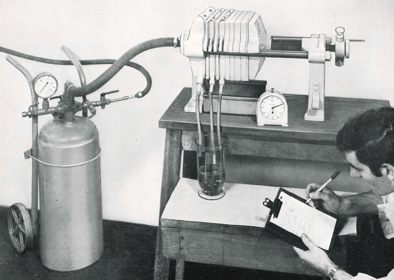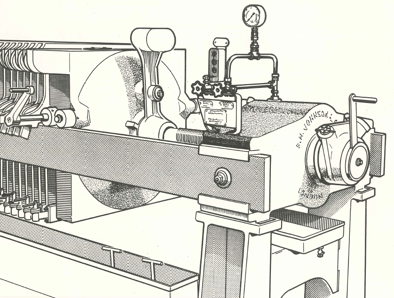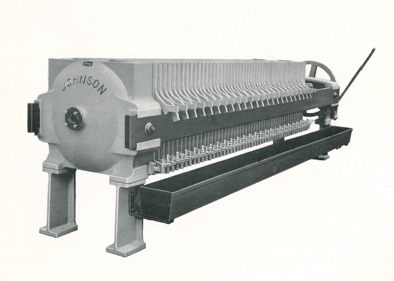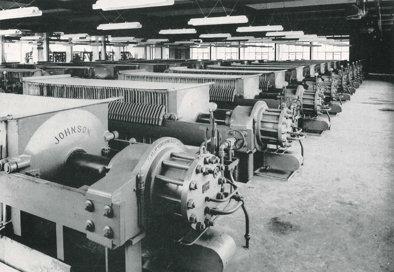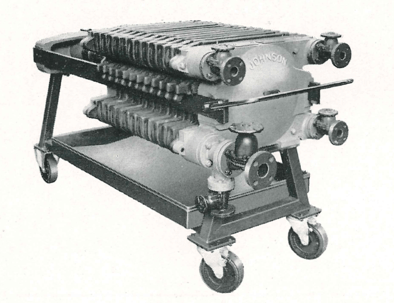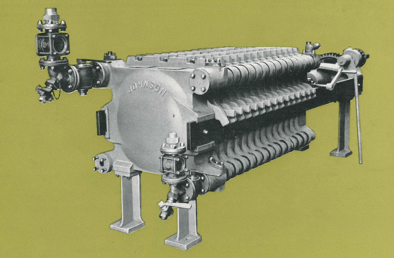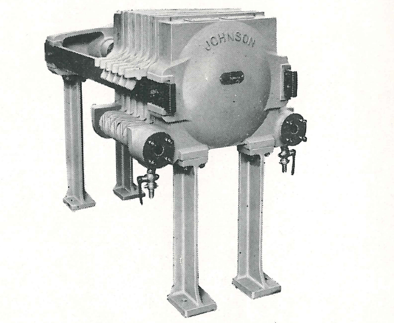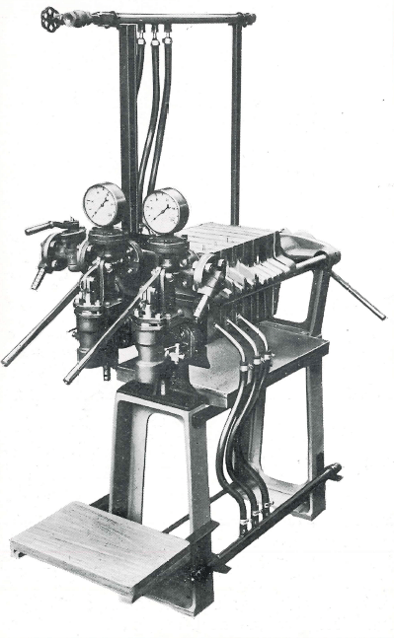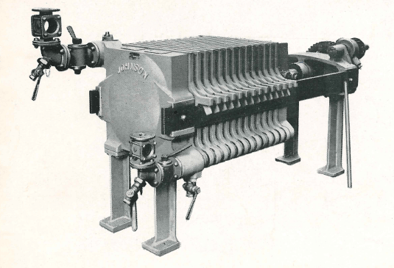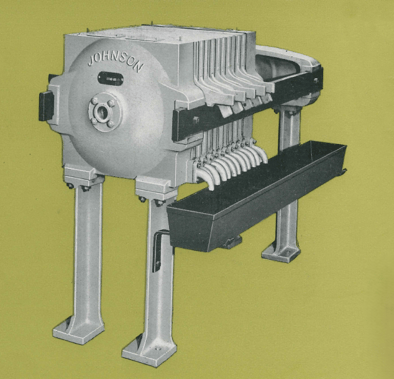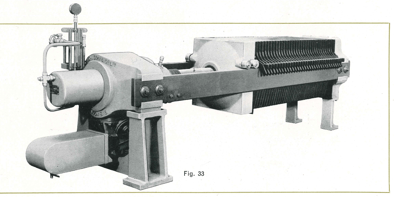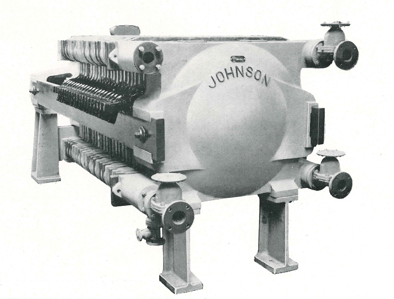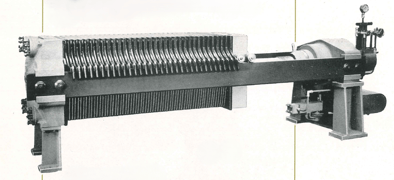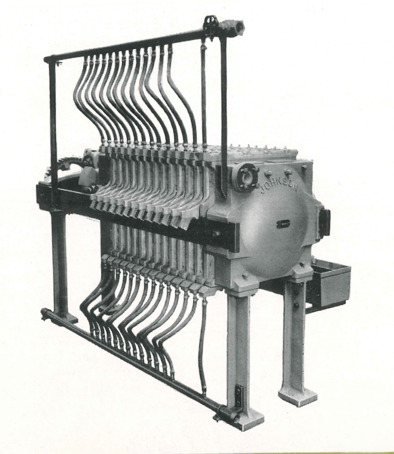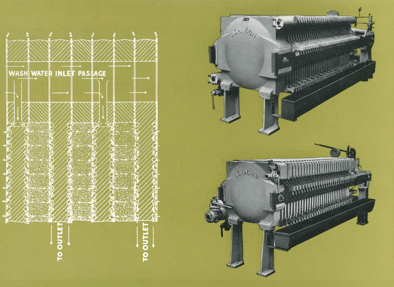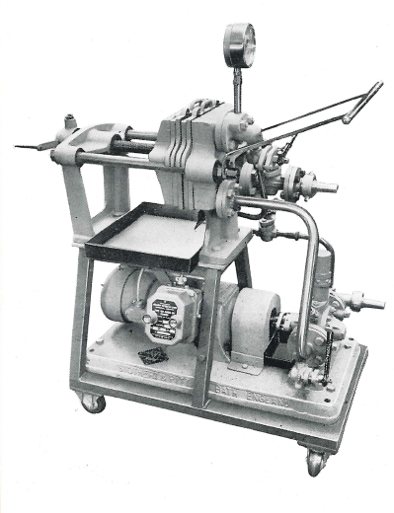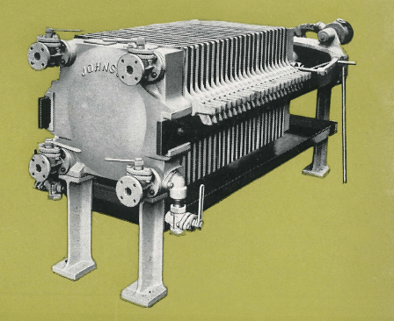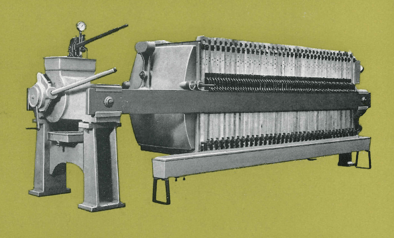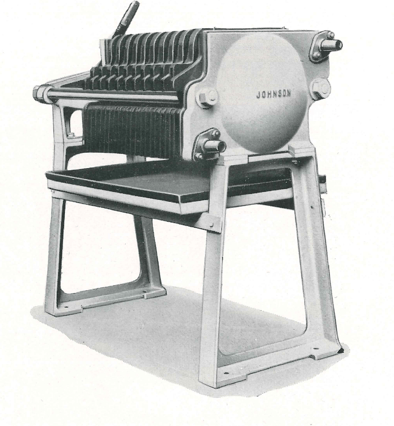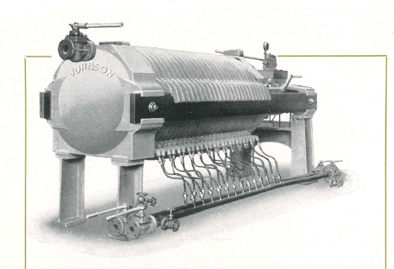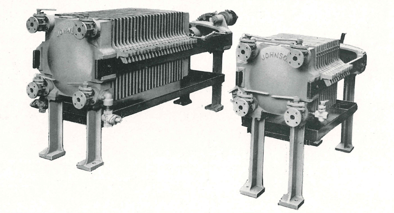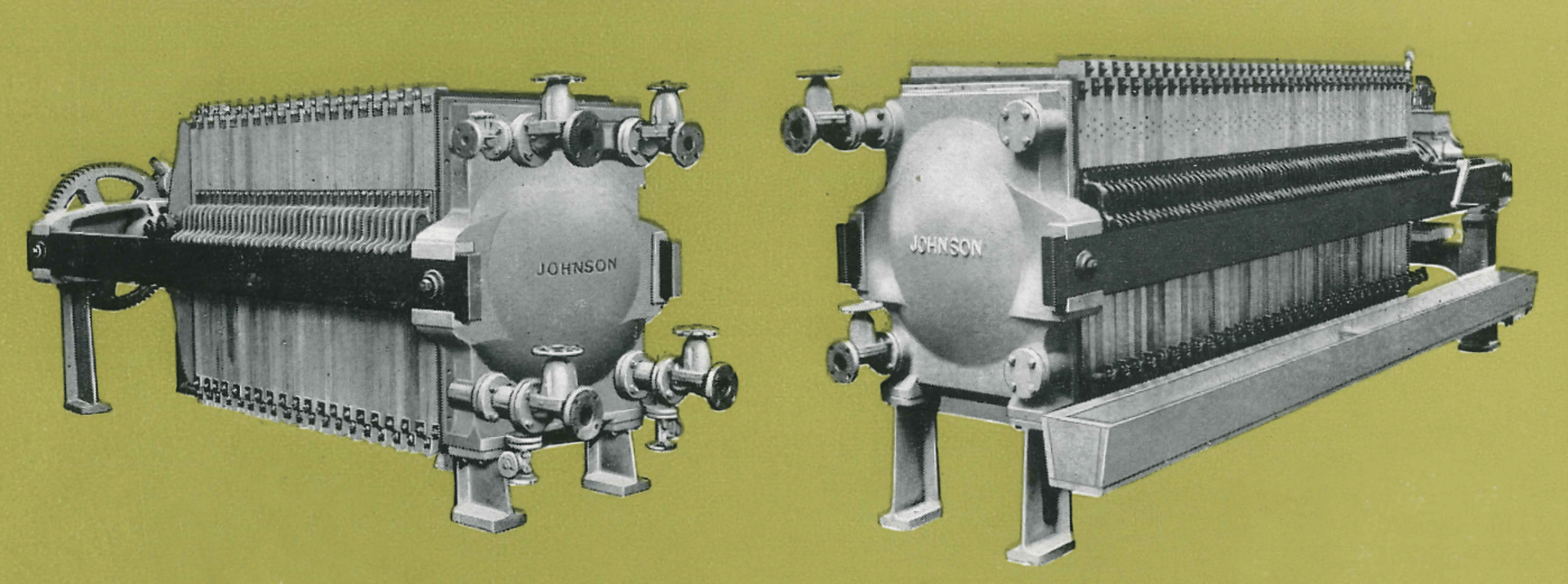
The first filter presses produced by Johnson were a significant advancement in filtration technology. These included recessed presses, plate and frame presses, washing presses, jacketed presses, and special filter presses, each designed to meet specific industrial needs. The principal material used in their construction was cast iron, known for its durability and strength. However, in applications where metal contamination and corrosion were concerns, the wood presses emerged as an alternative, constructed from timber. The primary timbers used included pitch pine, doussie, iroko, greenheart, and teak, providing both structural integrity and resistance to the elements. Lesser used materials such as oak and ash also found their place in the manufacturing process, showcasing the versatility and innovation involved in Johnson's early filter press designs. These developments laid the groundwork for future advancements in filtration technology.


